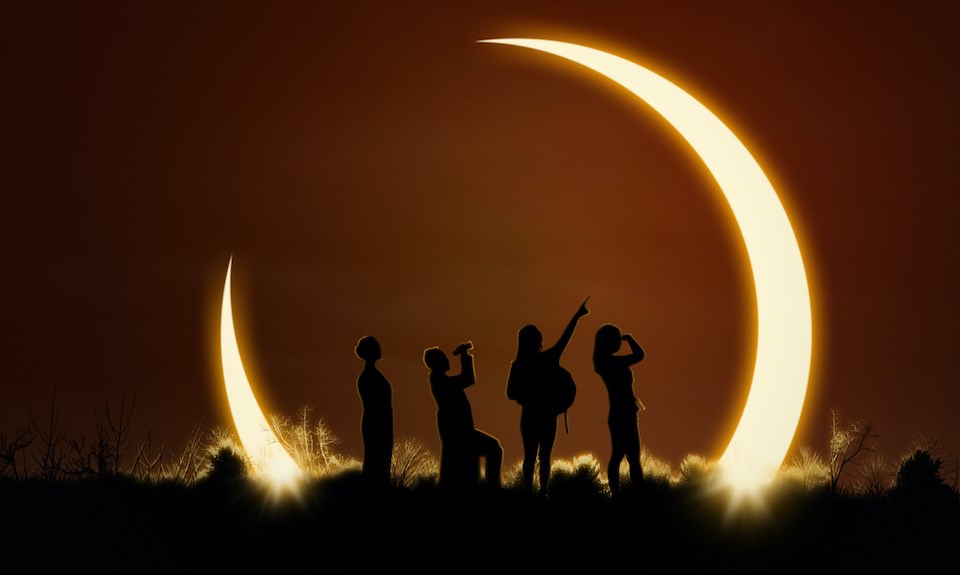Metro Vancouverites wouldn't have been able to see the full solar eclipse due to the region's proximity to the path of totality.
But there will be some solar sky-watching opportunities to enjoy in the not-so-distant future — although they don't promise the full effect of the celestial show.
UBC physics and astronomy associate professor Aaron Boley says the Vancouverites can view the solar eclipse in 2029, although it will only be a partial one again.
The event will occur on Sunday, Jan. 14, 2029, just after 8 a.m. and last until 10:03 a.m.; the moon will appear to of the sun from Â鶹´«Ã½Ó³»at 8:40 a.m., according to timeanddate.com.
The next solar eclipse that will be viewable from Â鶹´«Ã½Ó³»will occur in 2033. This eclipse will be a significant event for some people living in or visiting Alaska, as they'll observe a total solar eclipse from the northernmost state.
Unfortunately for Vancouverites, only another will be visible from the Lower Mainland. At its peak on March 30, 2024, at 10:41 a.m., up to half of the sun will appear blocked by the moon from Vancouver, according to timeanddate.com.
In 2044, locals won't have to travel far to see an awe-inspiring celestial display.
When will the next solar eclipse happen in B.C.?
While only a sliver of B.C. will observe the maximum display, there will be a total solar eclipse on Aug. 22, 2044 (see slide three).
The eclipse in Â鶹´«Ã½Ó³»will begin just after 4 p.m., lasting until just after 8:20 p.m. and reaching near totality at 6:15 p.m., according to timeanddate.com.
But places in northeastern B.C., such as Golden, will experience total darkness as the moon crosses in front of the summer sun.
An eclipse is considered "annular" when the moon is at its farthest point from Earth, making it appear smaller than the sun. Since the moon is farther away, it doesn't completely block the light from the bright star, explained Boley.
"So it doesn't block out the object. You see a ring."
During a total eclipse, the viewer is in the umbra (the dark part of the moon's inner shower).
"In 2044, the timing is such that it will have a shorter duration of totality with the way the shadow falls. It is all about how the shadow is moving across the Earth. It's all about how the shadow umbra is moving," he added.
British Columbians will have another opportunity to see a partial eclipse in 2045 that will cross the United States. It will be similar to the one from 2024 in that many places will view totality in the United States, but it will also hit parts of the Caribbean and South America.
While that solar eclipse won't reach totality anywhere in B.C., it will still mark a significant event across multiple continents.
"A total eclipse is not something that you can ignore," Boley notes.




